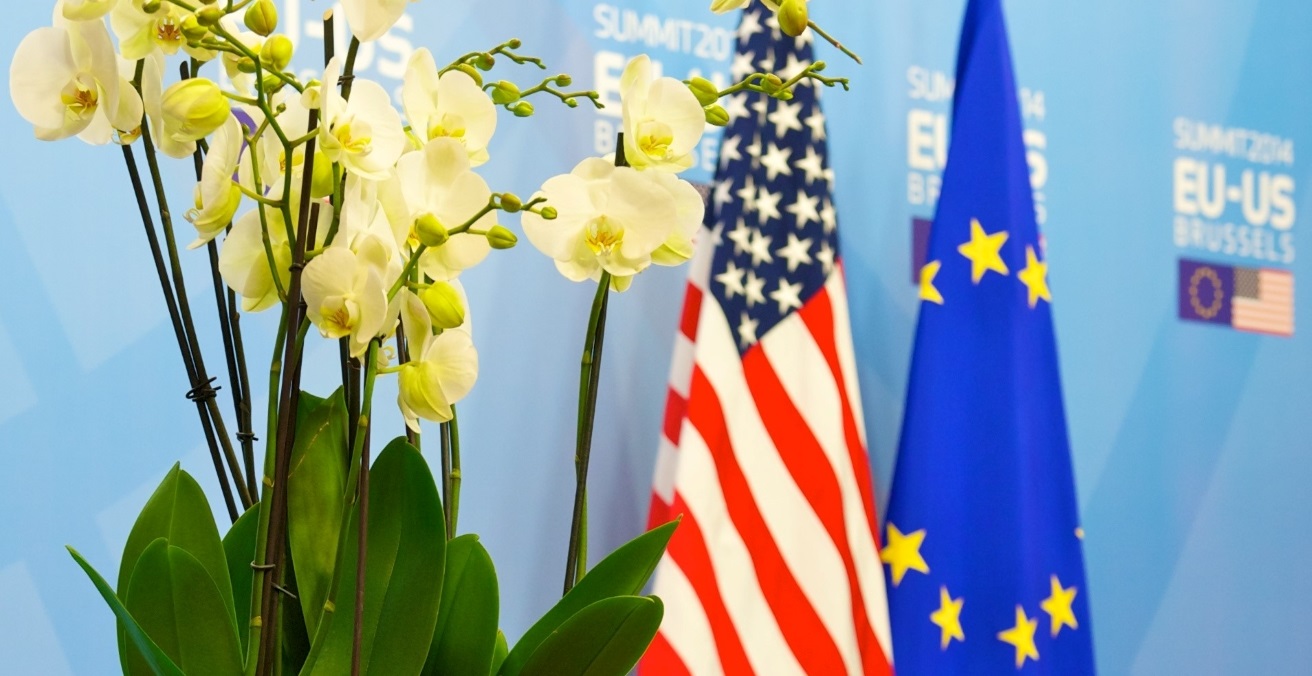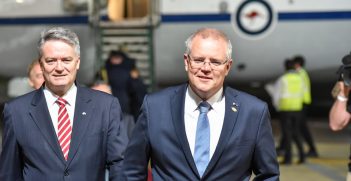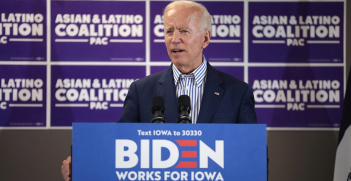Resetting EU-US Relations

The European Commission has reacted with uncharacteristic speed to Joe Biden’s call for a revived and enhanced transatlantic relationship. European Union leaders will meet on December 10 to endorse a detailed proposal to repair the continent’s post-war partnership with the United States.
The meeting follows what has been described as the “tensions of the Trump era and strategic challenges posed by China.” It comes just weeks after the EU’s foreign affairs chief warned the bloc’s neighbourhood was “engulfed in flames,” a reference to the friction caused by Russia in Belarus, Ukraine, and the eastern Mediterranean.
The European Commission has proposed what it calls a “comprehensive new alliance.” It is the second major initiative by the impressive German-born president of the European Commission, Ursula von der Leyen, whose A$1230 billion capital raising on global markets to relieve economic damage caused by the COVID-19 pandemic greatly enhanced Brussels’ financial status.
The 11-page document, leaked to the Financial Times, said: “The EU-US partnership needs maintenance and renewal if the democratic world is to assert its interests against authoritarian powers and closed economies.” As a first step, it suggests an EU-US summit early in the New Year.
Although the document is devoted to transatlantic relations and does not appear to mention Australia, it will be welcomed in Canberra, particularly by Scott Morrison, since Australia has been singled out by Beijing for harsh treatment. Australia-China relations have deteriorated rapidly in recent months to their lowest level in half a century. Morrison will welcome the fact that both president-elect Joe Biden and the EU leadership share his concerns about Beijing’s words and actions.
The EU proposal will be even more welcome to the Biden transition team, not least because it chimes perfectly with the priorities of the nominated secretary of state, Antony Blinken, a Europhile who owns a home in Paris and lived for nine formative years in the French capital. Not only that, Blinken learned from his stepfather how the European Community, the forerunner of the EU, had been formed essentially to rebuild a new Europe after the horror and devastation of two world wars. Samuel Pisar told Blinken of his own life as a child in a Poland, and how his father had been executed by the Nazis, and his mother and her sister gassed in an extermination camp. Pisar managed to escape and was rescued by the advancing US Army. These events and others shaped Blinken’s rise in later life, his passion for the United Nations rules-based order, a solid relationship between his adoptive home in the US and Europe, and for democracy. Joe Biden, with his Irish origins, shares his views.
That said, rebuilding the alliance will not be easy. The easy part will be a restoration of the transatlantic unity that existed on fighting climate change when Blinken was deputy secretary of state in the Obama administration. Biden has said that his first action after inauguration will be to restore the US as a signatory to the Paris Accord. It is likely that Blinken will execute that before the end of January. For von der Leyen, the EU New Green Deal is a priority – she wants Europe to lead the world in fossil fuel reduction and an energy revolution.
Both the Europeans and the Biden White House will also have similar views on tackling China. They will ditch the belligerent rhetoric and endless tweets of Trump, opting for quiet, professional diplomacy and a more businesslike relationship. Neither side of the Atlantic wants war, though red lines exist, particularly on Taiwan. Biden is likely to be the more forceful, contrary to the reporting of Fox News. Yet, like the Europeans, he rejects talk of “containing China.” Both want the world’s second largest economy to play a prominent role in global affairs deserving of its status and observing the rule of law.
Some of the other issues raised in the EU proposal will be more difficult to resolve. First is “burying the hatchet” between Washington and Brussels over the proposed imposition of a super tax on Silicon Valley’s IT giants. This issue first came to prominence in Australia at the 2014 Brisbane G20 summit, hosted by then-Prime Minister Tony Abbott. Many large corporations, not always in the tech sector, do not pay their fair share of corporation tax in each of the countries in which they operate. The OECD estimates that up to $240 billion of potential tax revenue is lost through tax shifting. France’s President Emanuel Macron became so irritated with slow progress by the OECD that he introduced a tax on the tech giants this year. Settling this issue will not be easy but efforts to find a compromise will continue.
When Trump pulled the US out of the World Health Organization (WHO) in the early days of the coronavirus pandemic, the EU resolved to help contribute to the funding gap. The Biden administration will re-join the WHO and play a more active part in all UN organisations, but there will be differences on global health policy.
Boris Johnson will be the “elephant not in the room” in the EU-US discussions early next year. While von der Leyen is a fan of British humour, she and other European leaders find little to smile about in the way Johnson has conducted Brexit negotiations. President-elect Biden’s vexation with the British prime minister has also been well aired, and he shares the EU’s fury at Johnson’s retraction of clauses in the legally binding Withdrawal Agreement, signed 12 months ago. Negotiations between Brussels and London have limped through this year with Downing Street displaying little good faith or common sense. In these final days of haggling over minor issues, Macron, supported by the Netherlands, Spain, and other countries, are telling EU negotiator Michel Barnier to call quits. Despite its reduced influence in Europe, Britain remains a European nuclear power and the leading European member of NATO. Both the EU and Biden’s US will want Britain within their renewed alliance.
Both the Biden administration and the EU intend to refocus their relations with the Asia Pacific region. Von der Leyen, an enthusiastic supporter of Biden’s 2021 summit of the democracies, has already made a start by announcing a May summit with Asia’s biggest democracy, India. The meeting will be hosted by Antonio Costa, prime minister of Portugal, which holds the presidency of the European Council for the first six months of next year. Future Secretary of State Blinken is on the same wavelength and noted in an essay co-authored with Robert Keegan that alliances are out of date: “As China’s Belt & Road Initiative draws Asia, Europe and the Middle East closer in ways that serve Beijing’s interests, the democracies also need a global perspective.” This is a view likely to be as welcome in ASEAN capitals and Tokyo as it is in Canberra.
As Christmas and the season of goodwill draws nigh, optimism is in the air. While the US remains deeply divided, most of the rest of the democratic world will want to see the Biden administration off to a good start. Though relations between the United States and Europe will be reset, it would be foolish to think that there will be a quick return to pre-Trump days.
As von der Leyen told Roula Khalaf, editor of the Financial Times, this weekend: “We are not going to pick up where we left off in 2016. The world has changed. The US has changed, but we have too. The last four years have taught us an important lesson – that we have to define our position as Europeans.”
Mature Australian policy makers and opinion formers should perhaps follow the EU’s lead and reset Canberra’s relations with America, Asia, and Europe to reflect the best interests of Australians.
Colin Chapman is a writer, broadcaster, and public speaker, who specialises in geopolitics, international economics, and global media issues. He is a former president of AIIA NSW and was appointed a fellow of the AIIA in 2017.
This article is published under a Creative Commons Licence and may be republished with attribution.





